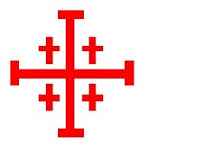The theoretical consecration of Gene Robinson. A sacrament is not a magic act, and cannot sanctify that which which has not been made holy.
Have you
heard the voice of the World within the Church crying out; “Don’t
you think that God should catch up with the times? After all, old ideas like
the Ten Commandments are rather antique, a remnant of times long since passed. Why
should humankind fear God? Why should the morality of the ancients apply today?
After all, man is the measure of all things; and fair minded men can establish
their own morality. Why, even now we are establishing laws that will tell the
generations to come that old notions of gender, sexuality, and marriage all are
passé.”
“He who sits in the heavens laughs; the Lord holds
them in derision” [Psalm 2:4]. In rebuke the Lord asks, “A son honors his
father, and a servant his master. If then I am a father, where is my honor? And
if I am a master, where is my fear? says the LORD of hosts to you, O priests,
who despise my name” [Malachi 1:6].
And you, child of God; you who hold God in honour: What
does the Lord of Host have to say to you in the midst of all this turmoil? “The
righteous shall live by faith” [Romans 1:17]. Hold firm to the things that you
have been taught for this world is passing away, along with all the sham glory
that belongs to it. In the meantime, “This is the will of God, your
sanctification” [1 Thessalonians 4:3]. The Psalmist says, ‘But the steadfast
love of the LORD is from everlasting to everlasting on those who fear him, and
his righteousness to children's children” [Psalm 103:17].



